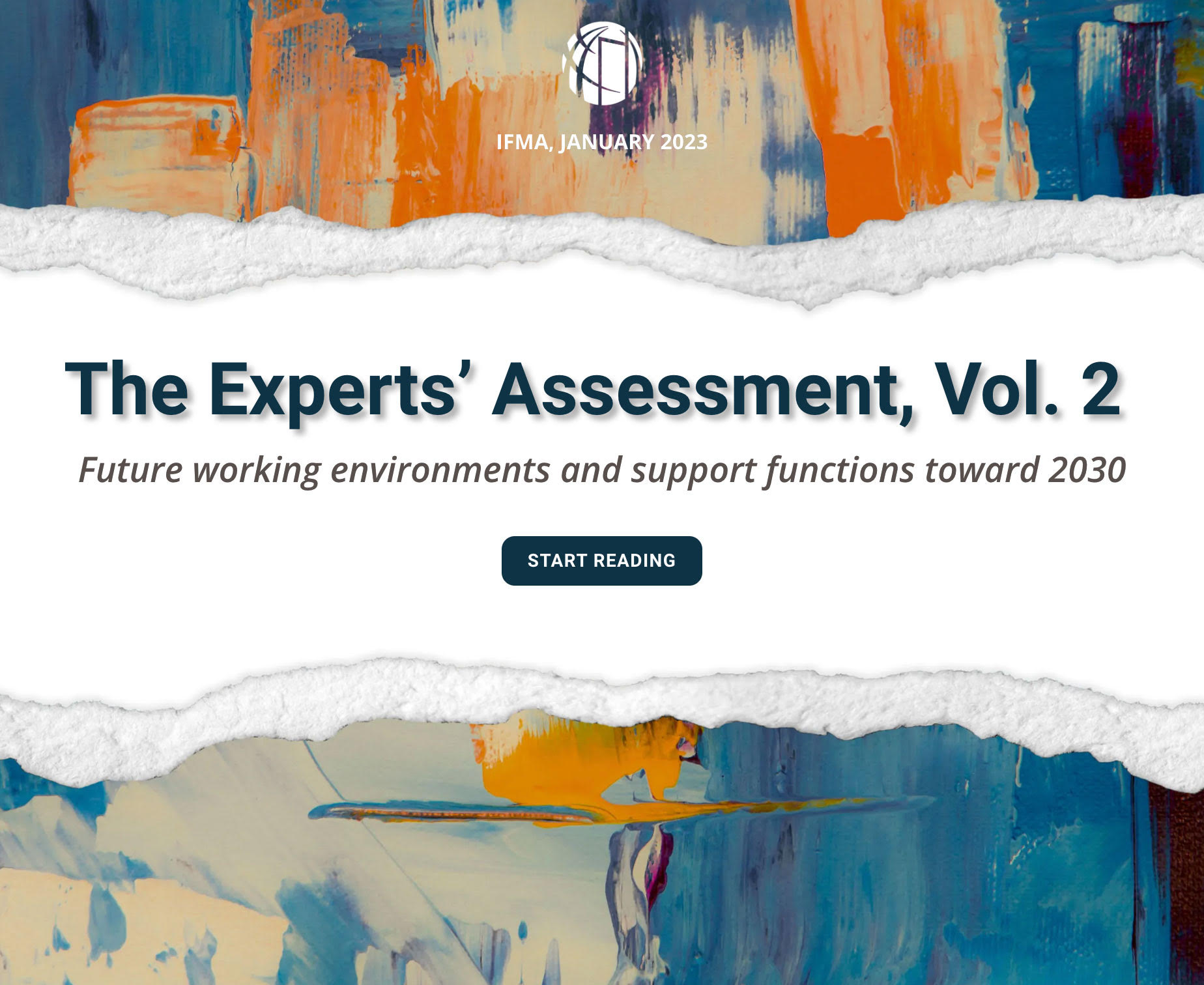- IFMA surveyed 222 global subject matter experts who are readying their organizations for new ways of working toward 2030
- “The Experts’ Assessment, Volume 2” identifies the most crucial focus areas for resilience, both for FM professionals and their organizations
Posted by Johann Nacario — January 26, 2023 — Just released, the International Facility Management Association’s (IFMA) Experts’ Assessment, Vol. 2: Future working environments and support functions toward 2030 is an in-depth analysis of what the facility management (FM) industry has learned since the first Experts’ Assessment study was conducted in 2020, and how changing organizational priorities are shaping the future of the built environment and FM roles. Assessing insights provided by subject matter experts (SMEs) from around the world, the report aims to build industry resilience and help FM professionals prepare for significant shifts in how organizations operate.
From July to September in 2022, IFMA used real-time Delphi methodology to survey 222 subject matter experts who are readying their organizations and clients for new ways of working toward 2030. Five thematic sections synthesize the SME’s perspectives on:
- Facilities in demand toward 2030
- Technology, work and workforce development
- Workplace management and strategy
- Environmental, social and corporate governance (ESG)
- Facility management in 2030
IFMA’s 2020 report, The Experts’ Assessment: The Workplace Post-COVID-19, was the result of discussions among 248 global SMEs about the pandemic’s long-term impacts on the workplace and how FMs would adapt to a new world of work. Volume 2 revisits the challenges, projected effects and recommended actions outlined two years ago, examining choices made and lessons learned, identifying the implications for future work environments and support functions.
IFMA president and CEO Don Gilpin remarked:
The subject matter experts who contributed to this study are industry leaders whose foresight and well-considered actions have sustained their organizations through unprecedented change. Understanding the decisions they’ve made to adapt and prepare their organizations for the future will help any FM gain clarity in forming their own strategies, as well as a solid base from which to gain buy-in on projects and policies that will mean the difference between sink or swim.
Volume 2 identifies the most crucial focus areas for resilience, both for FM professionals and their organizations. It shows that facility managers face several new realities requiring new mindsets, business models and technologies. With remote and hybrid work becoming the norm and organizations still struggling to entice workers back to the office, it is increasingly important for FMs to create more experiential spaces.
Laurie A. Gilmer, P.E., CFM, FMP, SFP, LEED AP, chair of IFMA’s Global Board of Directors, stated:
FMs are no strangers to change. We are attentive to varying conditions in our facilities and the business world. We plan for possible scenarios so that we are ready to pivot for the safety and productivity of our people and the endurance of our organizations. To be fully prepared, we must be fully informed. The Experts’ Assessment is a shining example of how our industry has remained forearmed and flexible, supported by IFMA’s initiative in identifying emerging trends, preparing FMs for the impacts and guiding us through challenges with critical information and insights.
Sponsored by HOK, JLL, Planon and Savills, IFMA’s Experts’ Assessment, Vol. 2: Future working environments and support functions toward 2030 may be accessed free of charge from IFMA.





